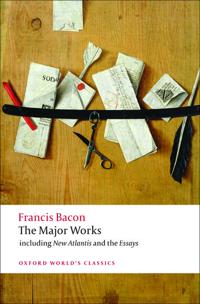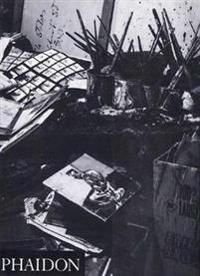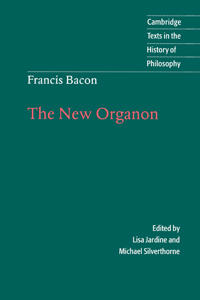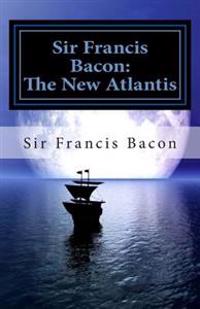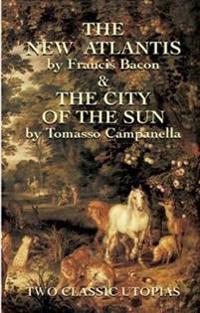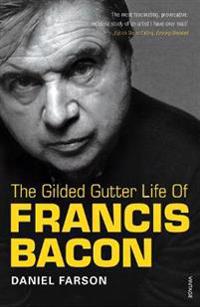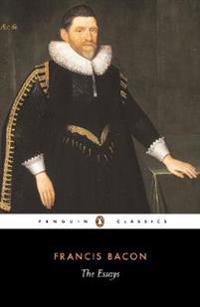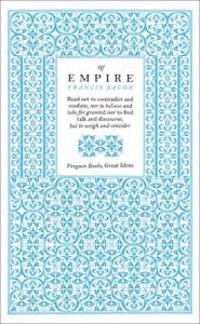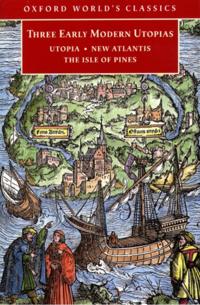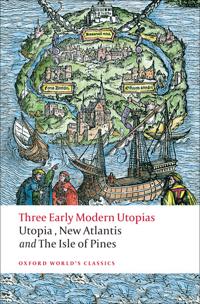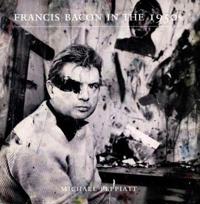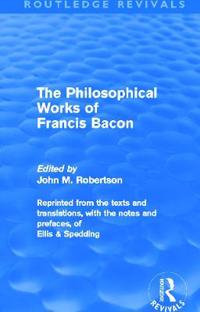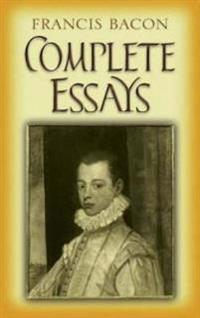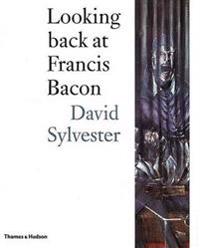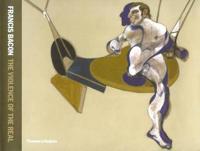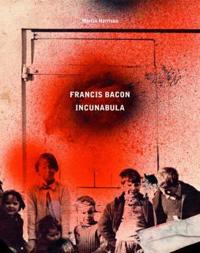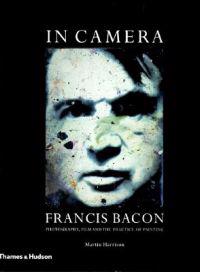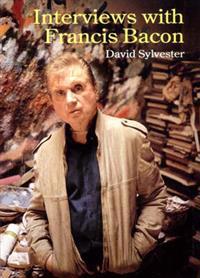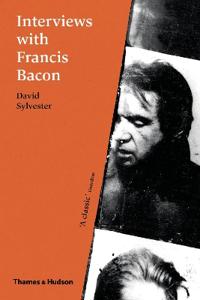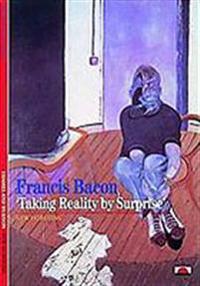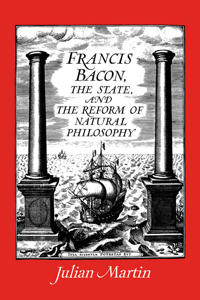Francis Bacon (Pocket)
avFrancis Bacon, Brian Vickers, Francis Bacon
ISBN: 9780199540792 - UTGIVEN: 200807This authoritative edition was originally published in the acclaimed Oxford Authors series under the general editorship of Frank Kermode. It brings together an extensive collection of Bacon's writing - the major prose in full, together with sixteen other pieces not otherwise available - to give the[...]
Francis Bacon in Conversation With Michel Archimbaud (Pocket)
avFrancis Bacon, Michel Archimbaud, Francis Bacon
ISBN: 9780714829838 - UTGIVEN: 199401Francis Bacon, one of the greatest painters of the twentieth century, speaks openly to his close friend Archimbaud about his life and art. The interviews took place in Bacon's studio just before his death in 1992. Francis Bacon was a self-taught painter and yet went on to become one of the greatest [...]
Francis Bacon: The New Organon (Häftad)
avFrancis Bacon
ISBN: 9780521564830 - UTGIVEN: 2000-03When the New Organon appeared in 1620, part of a six-part programme of scientific inquiry entitled ?The Great Renewal of Learning?, Francis Bacon was at the high point of his political career, and his ambitious work was groundbreaking in its attempt to give formal philosophical shape to a new and ra[...]
Sir Francis Bacon: The New Atlantis (Häftad)
avFrancis Bacon
ISBN: 9781451537635 - UTGIVEN: 2010-03The Advancement of Learning - Bacon (Häftad)
avFrancis Bacon
ISBN: 9781604241204 - UTGIVEN: 2007-09The New Atlantis and the City of the Sun (Pocket)
avFrancis Bacon, Tommaso Campanella, Francis Bacon
ISBN: 9780486430829 - UTGIVEN: 200307Gilded Gutter Life of Francis Bacon (Häftad)
avDaniel Farson
ISBN: 9780099307815 - UTGIVEN: 199401Widely regarded as the best British painter since Turner, very little is known about Francis Bacon's life. This book gives us an insight into Bacon's genius.[...]
The Essays (Storpocket)
avFrancis Bacon
ISBN: 9780140432169 - UTGIVEN: 198508One of the major political figures of his time, Sir Francis Bacon (1561-1626) served in the court of Elizabeth I and ultimately became Lord Chancellor under James I in 1617. A scholar, wit, lawyer and statesman, he wrote widely on politics, philosophy and science - declaring early in his career that[...]
Of Empire (Pocket)
avFrancis Bacon
ISBN: 9780141023892 - UTGIVEN: 200508Throughout history, some books have changed the world. They have transformed the way we see ourselves - and each other. They have inspired debate, dissent, war and revolution. They have enlightened, outraged, provoked and comforted. They have enriched lives - and destroyed them. Now Penguin brings y[...]
Three Early Modern Utopias: Thomas More: Utopia / Francis Bacon: New Atlantis / Henry Neville: The Isle of Pines
ISBN: 9780191587337 - UTGIVEN: 2015-11A unique edition of three early modern utopian texts, using a contemporary translation of More's Utopia and examining the Renaissance world view as shown by these writers. The edition includes the illustrative material that accompanied early editions of Utopia, full chronologies of the authors, not[...]
Three Early Modern Utopias: Thomas More: Utopia / Francis Bacon: New Atlantis / Henry Neville: The Isle of Pines
ISBN: 9780191606052 - UTGIVEN: 2015-11A unique edition of three early modern utopian texts, using a contemporary translation of More's Utopia and examining the Renaissance world view as shown by these writers. The edition includes the illustrative material that accompanied early editions of Utopia, full chronologies of the authors, not[...]
Three Early Modern Utopias (Pocket)
avThomas, Sir, Saint More, Francis Bacon, Henry Neville
ISBN: 9780199537990 - UTGIVEN: 200901Thomas More: Utopia/ Francis Bacon: New Atlantis/Henry Neville: The Isle of Pines With the publication of Utopia (1516), Thomas More introduced into the English language not only a new word, but a new way of thinking about the gulf between what ought to be and what is. His Utopia is at once a scath[...]
Francis Bacon in the 1950s (Häftad)
avMichael Peppiatt
ISBN: 9780300151213 - UTGIVEN: 2008-09From the screaming heads and snarling chimpanzees of the late 1940s to the anonymous figures trapped in tortured isolation some ten years later, British artist Francis Bacon during one crucial decade created many of the most central and memorable images of his entire career. The artist enters the de[...]
The Philiosophical Works of Francis Bacon
ISBN: 9780415679602 - UTGIVEN: 2011-07First published in 1905, this reissued edition of The Philosophical Works of Francis Bacon is an edited collection based upon the definitive seven volume edition of 1857, translated and prefaced by Robert Leslie Ellis and James Spedding. Of great historical, philosophical and scientific interest, th[...]
Looking Back at Francis Bacon
ISBN: 9780500019948 - UTGIVEN: 2000-09Controversial in both life and art, Francis Bacon was one of the most important painters of the twentieth century. His monumental, unsettling images have an extraordinary power to disturb, shock, and haunt the spectator, "to unlock the valves of feeling and therefore return the onlooker to life more[...]
Francis Bacon (Inbunden)
avPeter Burger, Maria Muller
ISBN: 9780500093351 - UTGIVEN: 200610Francis Bacon (19091992) was renowned for his dramatic depictions of the human form; he portrayed the ordeal of the vulnerable, defencelessly exposed body like no other artist of his generation. At the centre of this volume are about sixty of Bacons disturbing yet captivating studies of the human fi[...]
Francis Bacon: Incunabula
ISBN: 9780500093443 - UTGIVEN: 2008-09In 1949 Francis Bacon found his subject - the human body - and from then on it remained his principal theme. But he did not paint from life. Instead he appropriated images from the mass media that he manipulated into his `studies'. This book presents over 200 of the `working documents' about which B[...]
Francis Bacon (Inbunden)
ISBN: 9780500093757 - UTGIVEN: 2013-03Twenty years after the artists death, this new publication presents a timely and rich overview of the life and work of Francis Bacon. The book includes some 60 paintings as well as photographs, ephemera and archival material largely drawn from the artists studio. An introduction and four essays by i[...]
Francis Bacon (Pocket)
avJohn Russell
ISBN: 9780500202715 - UTGIVEN: 1993-10Based on conversations with Bacon that extended over several years, John Russell's original study revealed much about the man and the artist. On Bacon's death in 1992, the unique vision and accomplishment of one of the greatest artists of the century could be appreciated in their totality. In a new [...]
In Camera Francis Bacon: Photography, Film and the Practice of Painting
ISBN: 9780500238202 - UTGIVEN: 2005-05An exploration of the interplay between photography and painting in the work of Francis Bacon. Francis Bacon famously found inspiration in photographs, film stills, and mass-media imagery. This book draws on a broad range of source images and documents, many hitherto unknown, to reveal how these med[...]
The Brutality of Fact: Interviews with Francis Bacon (Häftad)
avDavid Sylvester
ISBN: 9780500274750 - UTGIVEN: 198711Ever since its first publication, this book - with its subsequent revised and augmented editions - has been considered a classic of its kind, and that reputation has become worldwide. As a discussion of problems of making art today it has been widely influential not only among artists but among writ[...]
Interviews with Francis Bacon
ISBN: 9780500292532 - UTGIVEN: 2016-11The extraordinarily revealing interviews with Francis Bacon conducted over a period of 25 years by the distinguished art critic David Sylvester amount to a unique statement by Bacon on his art and on art in general. In the book, a classic of its kind, Bacon considers the problems of realism and shed[...]
Francis Bacon (Häftad)
avChristophe Domino, Ruth Sharman
ISBN: 9780500300763 - UTGIVEN: 199703Bacon's powerful and disturbing images of the human figure have had a profound impact on the art of the 20th century. A lifelong student of colour, form and brushwork, he created an art at once classical and modern, ordered and chaotic, in which human emotions and passions are embedded within the ha[...]
Francis Bacon, the State and the Reform of Natural Philosophy (Pocket)
avJulian Martin
ISBN: 9780521035668 - UTGIVEN: 2007-04Why was it that Francis Bacon, trained for high political office, devoted himself to proposing a celebrated and sweeping reform of the natural sciences? Julian Martin's investigative study looks at Bacon's family context, his employment in Queen Elizabeth's security service and his radical critique [...]

